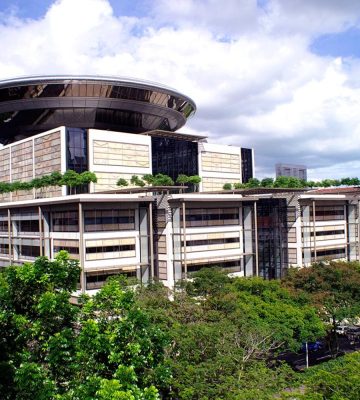ABLI received information of possibly the first ever attempt to have a Myanmar judgment recognised and enforced in China. On 2 June 2020, Chenzhou Intermediate People’s Court of China’s Hunan Province ruled, via civil ruling (2020) Xiang 10 Xie Wai Ren No. 1 (2020湘10协外认1号), that the application for recognition and enforcement of a Myanmar judgment (the citation given in Chinese is 2017 佤司法民终字第003号, which is literally translated to final Wa civil judgment 2017 No. 003) shall be rejected. The Myanmar judgment was given on 17 March 2017.
Based on the citation, the Myanmar judgment appears to be rendered by the High Court of Myanmar’s Wa State and deals with disputes between Chinese nationals over equity shares in mines in the country. The application to recognise and enforce the Myanmar judgment was filed in light of the continuing failure of the judgment debtor to settle RMB three million of equity payments despite the judgment.
The application was rejected by the Chinese court on a procedural ground under Item (2) of Article 543 of the Interpretations of the Supreme People’s Court on the Application of the Civil Procedure Law of the People’s Republic of China (Interpretations), i.e. the applicant’s failure to submit the original of the binding judgment rendered by a foreign court or a copy of that judgment which is proved to be free from any error.
The issue of reciprocity, a key prerequisite in China’s regime for recognition and enforcement of foreign judgments, did not seem to feature in the Chinese judgment, but commentators believe that the rejection of the application on a procedural defect rather than the lack of reciprocity is in itself a positive sign, especially since Myanmar, as an ASEAN member state, should be able to benefit from the Nanning Statement signed by ASEAN Chief Justices in 2017. Before this case, there does not seem to be any previous attempt to have Chinese judgments recognised and enforced in Myanmar or vice versa, and therefore there should not be any obstacle in establishing presumptive reciprocity advocated by the Nanning Statement.
Interestingly the plaintiff also applied for recognition and enforcement of a mediation agreement in the same case, but this request was not dealt with by the Chinese court. Currently neither the Civil Procedure Law nor the Interpretations include mediation agreements in the scope of instruments that can be recognised and enforced.
Perhaps what is most perplexing is that counsel for the plaintiff would have failed to prepare the required copies of the foreign judgment, one of the more straight-forward requirements among all prerequisites.
This write-up is based on an article that first appeared under the WeChat handle of Beijing Weiheng Law Firm. The Chinese judgment is available on China Judgments Online (registration is required).
We are aware that Wa State has unique attributes among States in Myanmar, and readers are advised to bear that in context in assessing the implications of this case.
To learn more about the rules for recognition and enforcement of foreign judgments in China and Myanmar respectively, read our Compendium Recognition and Enforcement of Foreign Judgments in Asia.
Whilst every effort has been made to ensure that the information contained in this update is correct, the Asian Business Law Institute disclaims all liability and responsibility for any error or omission in this update, and in respect of anything, or the consequences of anything, done or omitted to be done by any person in reliance, whether wholly or partially, upon the whole or any part of the contents of this update.






![[Recap] Summary and Key Takeaways of [Recap] Summary and Key Takeaways of](https://abli.asia/wp-content/uploads/elementor/thumbs/Recap-Summary-and-Key-Takeaways-of-r77alys47742g8invi0tlov2v311052vpb9j6zqbkk.png)
